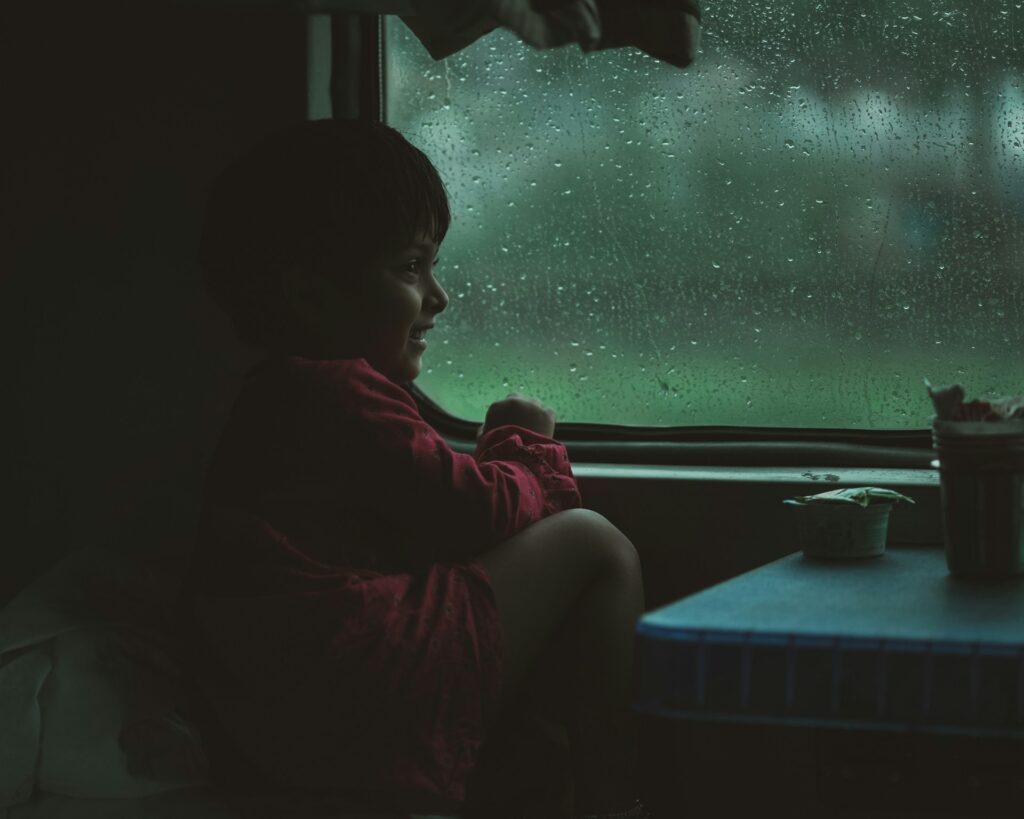Childhood experiences have a profound influence on adult behavior, personality, and social patterns. When someone grows up without meaningful friendships or a supportive peer group, they often adapt by developing habits that help them cope with loneliness, rejection, or neglect. While some of these habits may offer resilience and independence, others can create challenges in forming healthy adult relationships. Below are ten adult habits commonly linked to growing up with limited social connections during childhood.
1. Preference for Solitude

People who spent their childhood without real friends often grow into adults who are more comfortable being alone than in groups. Because solitude was a regular part of their early years, they may find peace in quiet activities like reading, writing, or creative hobbies. This comfort with isolation can be a strength, as it fosters independence and self-sufficiency. However, it may also make it harder for them to step outside their comfort zone and build new connections, since solitude feels familiar and safe.
2. Difficulty Trusting Others

Lonely children often internalize the idea that others will not support or accept them. As adults, this translates into guarded behavior and hesitation to trust people fully. They may worry that revealing vulnerabilities will lead to judgment or betrayal. While caution can protect against harmful relationships, excessive distrust can prevent closeness with others. This habit can create barriers in romantic partnerships, friendships, and even professional networks where trust is essential.
3. Strong Imagination and Rich Inner World

Without peers to play or share experiences with, many lonely children turn inward, developing vivid imaginations. They may have relied on books, daydreaming, or creative projects to keep themselves occupied. In adulthood, this manifests as a powerful ability to think creatively, solve problems, or immerse themselves in art, writing, or innovation. While this inner world is often a source of strength, it can sometimes act as a substitute for real-world connections, making it easier to escape into fantasy rather than engage with others.
4. Overthinking and Self-Criticism

Children who lacked friends often spent a lot of time analyzing why they were excluded. This self-questioning can evolve into a lifelong habit of overthinking. As adults, they may replay conversations in their head, worry excessively about how others perceive them, or second-guess decisions. This constant self-monitoring often fuels self-criticism, leading them to doubt their worth or abilities. While reflection can lead to growth, excessive overthinking can cause stress and prevent them from enjoying social or professional interactions.
5. Heightened Sensitivity to Rejection

Growing up without friendships means early experiences of exclusion or neglect become deeply ingrained. Adults with this background often develop heightened sensitivity to rejection. Even minor disagreements or neutral feedback may feel like personal attacks. This sensitivity can make them cautious about forming relationships, since they fear being abandoned or ridiculed. The emotional pain of potential rejection often outweighs the desire to connect, leading to avoidance of new opportunities for closeness.
6. Independent Problem-Solving

Without friends to rely on, lonely children often learned to solve problems independently. This habit carries into adulthood as a strong sense of self-reliance. They may avoid asking for help, preferring to manage challenges on their own. While independence is valuable, it can also prevent collaboration and make teamwork difficult. Others may interpret this behavior as distant or unwilling to engage, when in reality it is a coping strategy learned in early years.
7. Difficulty Expressing Emotions

When children lack trusted friends, they often keep their feelings bottled up. With no safe outlet for emotional expression, they grow into adults who struggle to communicate emotions openly. Instead, they may downplay their feelings, act indifferent, or retreat during conflicts. This habit can complicate intimate relationships, as partners or friends may feel shut out or confused. While emotional restraint can sometimes maintain stability, it often prevents deeper bonds that require openness and vulnerability.
8. Seeking Validation through Achievement

For some, the lack of peer approval in childhood leads to a strong drive for recognition in adulthood. Instead of finding validation in friendships, they may pursue academic, professional, or personal accomplishments as a way to prove their worth. While ambition and achievement are positive traits, they can also create pressure and perfectionism. The constant need for validation may lead to burnout, since external recognition never fully replaces the emotional support that comes from meaningful relationships.
9. Selective and Cautious Friendships

Adults who grew up lonely often become highly selective when choosing friends. Because early experiences taught them that not everyone will accept or understand them, they may invest energy only in a small number of trusted relationships. While this leads to loyal and meaningful connections, it also limits their social network. They may miss out on casual friendships or broader community experiences because they focus only on people they feel absolutely safe with.
10. Tendency to Withdraw During Stress

Children without strong friendships often learned to cope with challenges by retreating into themselves. As adults, this habit continues during times of stress. Instead of seeking comfort from others, they may isolate and handle problems alone. While this can make them resilient, it can also deepen feelings of loneliness. Loved ones may feel shut out or unneeded, even when they want to provide support. Recognizing this pattern is crucial for building healthier coping strategies that involve both independence and connection.
Conclusion

The habits formed from a lonely childhood are not inherently negative, but they often create challenges in adulthood that require awareness and intentional change. A preference for solitude, independence, and creativity can be strengths, but difficulties with trust, emotional expression, and rejection sensitivity can hold people back from building fulfilling relationships. Understanding the roots of these habits is the first step toward addressing them. With therapy, self-reflection, and conscious effort, adults can learn to balance their independence with openness, gradually creating the connections they missed in childhood. Ultimately, the resilience and self-sufficiency gained from a lonely childhood can become powerful tools for personal growth when combined with new skills in trust and communication.
Read More: How These 7 Routine Habits May Be Wearing You Out
Disclaimer: This article was created with AI assistance and edited by a human for accuracy and clarity.

